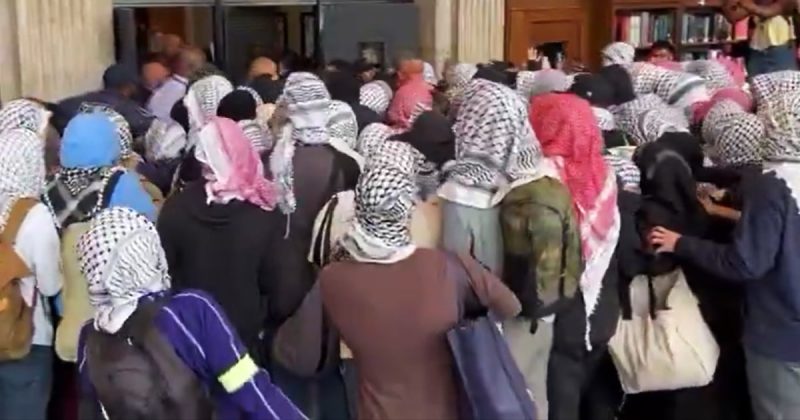
Days after Israel’s security cabinet approved a plan to seize the Gaza Strip, pro-Palestinian protests erupted at Columbia University. Students occupied a reading room in Butler Library, chanting and attempting to leave despite apparent efforts by security personnel to prevent them. The demonstration marks a resurgence of on-campus activism against the university’s perceived ties to Israel, echoing similar protests that swept across the nation last spring.
Columbia University released a statement acknowledging the disruption and confirming that public safety officers were working to resolve the situation. Students involved were asked to identify themselves and leave, with the university warning of disciplinary consequences for non-compliance. The university temporarily closed the library and urged students to avoid the area.
While the university characterized the protest as a disruption to academic activities, particularly with final exams approaching, the student group Columbia University Apartheid Divest (CUAD) framed the action as a necessary response to what they see as the university’s complicity in Israeli actions. CUAD publicized the protest on social media, calling it a “reclaiming” of the reading room and renaming it the Basil-Al-Araj Popular University. Videos posted online show tense moments between protesters and security, with protesters refusing to identify themselves before being allowed to leave.
The protest comes amid heightened tensions following Israel’s announcement of its plan to seize the Gaza Strip, a move described by Prime Minister Benjamin Netanyahu as an intensive military operation against Hamas. The ongoing blockade of Gaza, now in its third month, further fuels the conflict. The demonstration also occurs against the backdrop of the Trump administration’s efforts to restrict federal funding to universities deemed insufficiently proactive in combating antisemitism.
CUAD’s statement highlights their demands: complete divestment from Israel, the removal of police and ICE from campus, and amnesty for those facing disciplinary action from the university. The choice of Butler Library itself is also significant, as the group criticizes the library’s namesake, Nicholas Murray Butler, for his alleged Nazi sympathies. The protest underscores the complex interplay of geopolitical events, campus activism, and institutional responses in the face of deeply held beliefs and contentious political issues.










